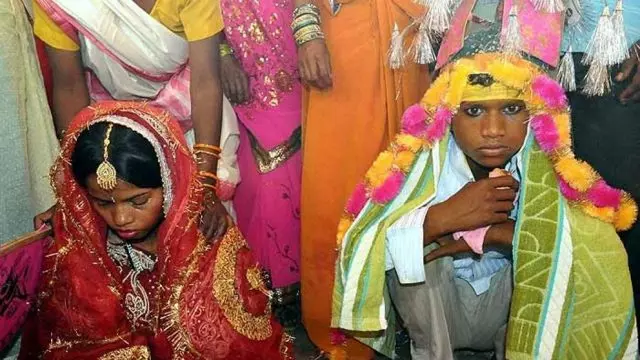
Mounting teenage pregnancies in Karnataka a cause for concern
Almost 70 per cent of teenage pregnancies are due to child marriages which, though illegal, occur with the seniors' consent; the rest are due to illicit sex

In January this year, a 14-year-old Class-9 student living in a girls’ hostel run by Karnataka’s social welfare department at Madhugiri in Tumkuru district gave birth to a boy weighing 2.2 kg.
After the delivery at the Chikkaballapur district hospital on January 10, the authorities suspended the hostel warden on grounds of negligence. The child’s father is not known.
In December 2023, a POCSO case was registered in Yalandur taluk of Chamarajanagar district after a tribal girl became pregnant. She blamed a fellow student for her plight.
Worrying trend
A year earlier, a Class-12 student gave birth to a child in a hostel run by the social welfare department in Chikkamagalur district, around 300 km from Bengaluru.
Authorities and NGOs say these are not isolated cases. Indeed, teenage pregnancies are on a dramatic rise all across rural Karnataka, with most of the affected girls hailing from economically backward families.
Officials and activists say the situation is both worrying and alarming.
Child marriages
According to officials, almost 70 per cent of teenage pregnancies arise due to child marriages which, although illegal, take place with the consent of seniors. The remaining pregnancies are due to illicit sex.
"They don't bring the incidents to the notice of their teachers, their friends, or hostel wardens,” Narasimha S, a child rights activist, told The Federal, referring to girls who become pregnant outside of marriage.
“They don't even know how and when to reach the police or a competent authority to get clearance for the pregnancy termination,” he added.
Worried parents
Some officials admit there is complete negligence on the part of the staff at the girls’ hostels, leading to unwanted pregnancies.
Naturally, this worries parents from poor families who send their children to these hostels run by the social welfare department.
Raman Naik (name changed), belonging to a backward community from Tumkur region, admitted that he got his daughter married when she was just 16, as it was the community custom. Naturally, they hid the wedding from the authorities.
Nomadic communities
"Now we are suffering, as my daughter has had a baby. It has led to health issues related to genetic disorders. Doctors say the problem was because the marriage was between the same blood group and also in the same family.”
Naik added: “My daughter was not interested in marrying and she wanted go study more. But I forced her to marry my relative," he said.
Alvin Mendonca, a human rights activist, said child marriages were taking place mainly in small communities. “We have to raise awareness among the people, mainly the nomadic communities,” he said.
Sexual exploitation
In some cases, the girls seemed to be unaware that they were pregnant till it was too late for medical intervention.
According to Devaraja Gowda, a retired deputy director of the social welfare department, minor girls unknowingly become victims of sexual exploitation.
“They won't reveal the incident to the persons concerned because they are either afraid of the society or they are not aware of the pregnancy.”
According to the Medical Termination of Pregnancy (MTP) Act, 1971, a pregnancy can be terminated within 20 weeks of the foetus's development.
Pregnancy statistics
Recently, the Gujarat High Court permitted a 16-year-old rape victim to terminate her pregnancy which had exceeded 27 weeks. In another case in Kerala, the high court declined a plea requesting the termination of the pregnancy of a 12-year-old girl. The foetus was 34 weeks old.
The Karnataka High Court recently directed conducting pregnancy test of every female child victim of rape and sexual offences under the POCSO Act, which also governs child marriages.
Karnataka recorded 45,557 teenage pregnancies from 2020 to 2023, according to RTI details obtained from the health and family welfare department by the Mysuru-based NGO, Odanadi Seva Samsthe.
Government steps
In the first half of 2023, the number of such cases was 2,736. It might have crossed 5,000 by the end of the year.
According to officials, 90 per cent of the teenage pregnancies are of girls under 18 years.
The state government has asked the social welfare and home departments to conduct surprise visits to government hostels to oversee the safety of female students.
Also, the government has planned to conduct awareness and counselling programmes in all schools. The role of wardens of hostels also need to be monitored, an official said.
